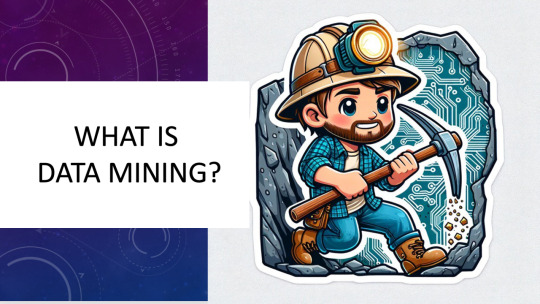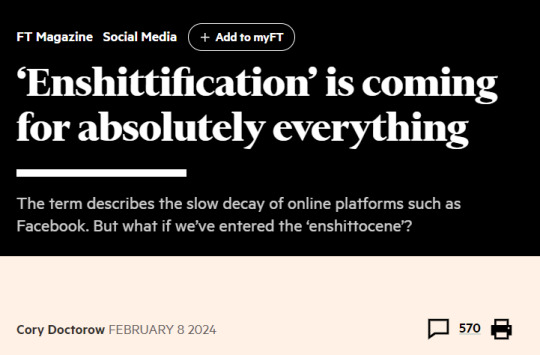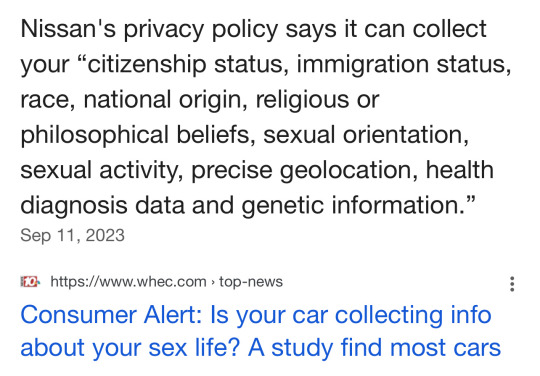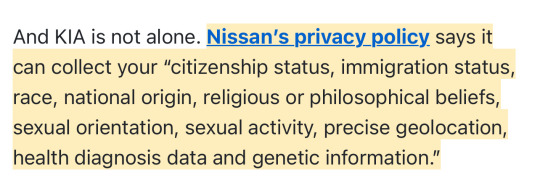#big-data
Explore tagged Tumblr posts
Text
What is data mining?
What is Data Mining? Michael Segaline Data Scientist and Media LION be Relevant. December 19, 2024 Hello world! I am Data Mining Mike and today we are going to explore the fascinating world of data mining! Up there in the cloud ☁️ so high; There’s a bunch of data 📊 on you and I; So much that nobody knows what to do 🤷♂️; But there’s a guy who is on your team 🤝; Who takes dirty data 🧹 and…

View On WordPress
#ai#artificial-intelligence#big-data#data-mining-mike#data-science#machine-learning#python#statistics
1 note
·
View note
Text
If you're feeling anxious or depressed about the climate and want to do something to help right now, from your bed, for free...
Start helping with citizen science projects
What's a citizen science project? Basically, it's crowdsourced science. In this case, crowdsourced climate science, that you can help with!
You don't need qualifications or any training besides the slideshow at the start of a project. There are a lot of things that humans can do way better than machines can, even with only minimal training, that are vital to science - especially digitizing records and building searchable databases
Like labeling trees in aerial photos so that scientists have better datasets to use for restoration.
Or counting cells in fossilized plants to track the impacts of climate change.
Or digitizing old atmospheric data to help scientists track the warming effects of El Niño.
Or counting penguins to help scientists better protect them.
Those are all on one of the most prominent citizen science platforms, called Zooniverse, but there are a ton of others, too.
Oh, and btw, you don't have to worry about messing up, because several people see each image. Studies show that if you pool the opinions of however many regular people (different by field), it matches the accuracy rate of a trained scientist in the field.
--
I spent a lot of time doing this when I was really badly injured and housebound, and it was so good for me to be able to HELP and DO SOMETHING, even when I was in too much pain to leave my bed. So if you are chronically ill/disabled/for whatever reason can't participate or volunteer for things in person, I highly highly recommend.
Next time you wish you could do something - anything - to help
Remember that actually, you can. And help with some science.
#honestly I've been meaning to make a big fancy thorough post about this for literally over a year now#finally just accepted that's not going to happen#so have this!#there's also a ton of projects in other fields as well btw#including humanities#and participating can be a great way to get experience/build your resume esp if you want to go into the sciences#actual data handling! yay#science#citizen science#climate change#climate crisis#climate action#environment#climate solutions#meterology#global warming#biology#ecology#plants#hope#volunteer#volunteering#disability#actually disabled#data science#archives#digital archives#digitization#ways to help#hopepunk
42K notes
·
View notes
Text
Not to preach to the choir but I wonder if people generally realize that AI models like ChatGPT aren't, like, sifting through documented information when you ask it particular questions. If you ask it a question, it's not sifting through relevant documentation to find your answer, it is using an intensely inefficient method of guesswork that has just gone through so many repeated cycles that it usually, sometimes, can say the right thing when prompted. It is effectively a program that simulates monkeys on a typewriter at a mass scale until it finds sets of words that the user says "yes, that's right" to enough times. I feel like if it was explained in this less flattering way to investors it wouldn't be nearly as funded as it is lmao. It is objectively an extremely impressive technology given what it has managed to accomplish with such a roundabout and brain-dead method of getting there, but it's also a roundabout, brain-dead method of getting there. It is inefficient, pure and simple.
#the notes on this post are about to get sooooo annoying#this doesnt touch on the fact that AI is stealing artist's jobs which i think is the real biggest harm of AI#but like#god#just take a minute and think about how stupid the current use-cases for AI are when you consider how it gets to those conclusions#this guesswork has its place in fields where guesswork is necessary like when screening for potential health issues in the medical field#but the benefit of the medical field is that when you get a false positive you can just do further testing to confirm the initial reading#that's called a second opinion and it is how the medical field is structured fundamentally#if you screen someone for cancer and it comes out positive#but it turns out they didnt really have cancer#that's fine! that's good news and it's good that you were at least wary of it!#but so many other applications for AI do not have this leeway where incorrect answers have further reaching consequences#and more importantly AI isn't stealing the fucking jobs of doctors!!!#although jesus i really wish doctors would stop using AI to take notes for patients#yes please lets give all my personal medical info to a big machine that stores and processes literally everything it hears#im sure there would never be far reaching consequences if that machine ever had a data breach#blah
2K notes
·
View notes
Text

So. I went online and bought this Transformers generations Blurr toy and holy shit nothing prepared me for the lore on the back of it’s box o_o
Also every time Blurr gets to be a sniper my soul ascends a little bit~
+ Bonus doodles

#maccadam#transformers#blurr#tf blurr#I’m pretty sure the figure comes with one or two big ass riffles#the box has them at least#I already have two drifts now I need two Blurrs#Eventually I will get second Jazz im pretty sure ahahaha#ALSO. LISTEN. THIS. VERSION OF BLURR IS SO FUCKING COOL#Delivering super secret data and sniping his enemies???#Being all fast and chatty and also INCREDIBLY patient and focused when needed#that right here is Spec Ops material if I ever saw one#fucking. imAGINe. Decepticons have freaking Soundwave on their side. Soundwave can catch any signal and transmission and call and data#the solution#Yeah no just give the most important data to Blurr and use him like a pigeon for delivering messages#good luck hacking this Soundwave
1K notes
·
View notes
Text

Fifty per cent of web users are running ad blockers. Zero per cent of app users are running ad blockers, because adding a blocker to an app requires that you first remove its encryption, and that’s a felony. (Jay Freeman, the American businessman and engineer, calls this “felony contempt of business-model”.) So when someone in a boardroom says, “Let’s make our ads 20 per cent more obnoxious and get a 2 per cent revenue increase,” no one objects that this might prompt users to google, “How do I block ads?” After all, the answer is, you can’t. Indeed, it’s more likely that someone in that boardroom will say, “Let’s make our ads 100 per cent more obnoxious and get a 10 per cent revenue increase.” (This is why every company wants you to install an app instead of using its website.) There’s no reason that gig workers who are facing algorithmic wage discrimination couldn’t install a counter-app that co-ordinated among all the Uber drivers to reject all jobs unless they reach a certain pay threshold. No reason except felony contempt of business model, the threat that the toolsmiths who built that counter-app would go broke or land in prison, for violating DMCA 1201, the Computer Fraud and Abuse Act, trademark, copyright, patent, contract, trade secrecy, nondisclosure and noncompete or, in other words, “IP law”. IP isn’t just short for intellectual property. It’s a euphemism for “a law that lets me reach beyond the walls of my company and control the conduct of my critics, competitors and customers”. And “app” is just a euphemism for “a web page wrapped in enough IP to make it a felony to mod it, to protect the labour, consumer and privacy rights of its user”.
11K notes
·
View notes
Text

8K notes
·
View notes
Text
🗣️ This is for all new internet connected cars

A new study has found that your car likely knows more about you than your mom. That is disconcerting, but what’s even more so is what is being done with your information. It’s all about the Benjamins. Our private information is being collected and sold.
The Mozilla Foundation, a non-profit that studies internet and privacy issues, studied 25 car manufacturers. And it found every manufacturer sold in America poses a greater risk to your privacy than any device, app or social media platform.
Our cars are rolling computers, many of which are connected to the internet collecting information about how you drive and where. New cars also have microphones and sensors that give you safety features like automatic braking and drowsy driver detection. Those systems are also providing information. Got GPS or satellite radio? Then your car likely knows your habits, musical and political preferences.
Did you download your car’s app which gives you access to even more features? Well that also gives your car access to your phone and all the information on it.
The study found that of the 25 car brands, 84% say they sell your personal data.
And what they collect is astounding.
One example the study sites is KIA’s privacy policy. It indicates the company collects information about your sexual activity. I initially didn’t believe it until I pulled KIA’s privacy policy and read it. And it’s right there in black and white. It says it collects information about your “ethnicity, religious, philosophical beliefs, sexual orientation, sex life, or political opinions.

And it says it can keep your info for “as long as is necessary for the legitimate business purpose set out in this privacy notice.”
Translation: Nissan can keep your information as long as they want to. And more than half of the manufacturers (56%) say they will share your information with law enforcement if asked.
(continue reading) more ↵
#politics#data mining#smart cars#spyware#privacy rights#surveillance state#new cars#big brother#nissan#kia#connected cars#consumer alert#panopticon
9K notes
·
View notes
Text
Microsoft's Nuclear Odyssey: A Symphony of Power, Politics, and Pioneering
Seattle, WA — In an era where “green” is the new gold and “renewable” the new religion, Microsoft is playing a different tune—let’s call it the Nuclear Symphony. As the tech giant ventures into nuclear energy, it’s not just making waves; it’s creating tsunamis that could reshape the energy landscape, the tech industry, and even geopolitics. The Energy Labyrinth Data centres are the unsung…

View On WordPress
#2023#big-data#Bill#centres#change#clean-energy#climate#cloud#computing#corporate-responsibility#energy#energy-policy#energy-security#energy-transition#environmental#Gates#global#impact#innovation#Microsoft#nuclear#reliability#renewable-energy#sustainability#tech#tech-giants#trends
0 notes
Text





appreciation post for san’s big heart 🍒
#big thanks to all of the participants and the data they provided#<- tags on one singular gifset#san#choi san#ateez#ateezedit#ateez gifs#atzedit#kpopedit#kpop#*gifs#*tagsedit#<- organization 4 me#tw flash#atzsource
607 notes
·
View notes
Text



Star Trek The Next Generation "The Big Goodbye"
#Star Trek#Star Trek The Next Generation#TNG#The Big Goodbye#Data#Data Soong#Jean Luc Picard#tngedit#startrekedit#startrekdaily#tvedit#scifiedit#80sedit#tng s1#GIF#my gifs#Hide and Queue
452 notes
·
View notes
Text
Ad-tech targeting is an existential threat

I'm on a 20+ city book tour for my new novel PICKS AND SHOVELS. Catch me TORONTO on SUNDAY (Feb 23) at Another Story Books, and in NYC on WEDNESDAY (26 Feb) with JOHN HODGMAN. More tour dates here.

The commercial surveillance industry is almost totally unregulated. Data brokers, ad-tech, and everyone in between – they harvest, store, analyze, sell and rent every intimate, sensitive, potentially compromising fact about your life.
Late last year, I testified at a Consumer Finance Protection Bureau hearing about a proposed new rule to kill off data brokers, who are the lynchpin of the industry:
https://pluralistic.net/2023/08/16/the-second-best-time-is-now/#the-point-of-a-system-is-what-it-does
The other witnesses were fascinating – and chilling, There was a lawyer from the AARP who explained how data-brokers would let you target ads to categories like "seniors with dementia." Then there was someone from the Pentagon, discussing how anyone could do an ad-buy targeting "people enlisted in the armed forces who have gambling problems." Sure, I thought, and you don't even need these explicit categories: if you served an ad to "people 25-40 with Ivy League/Big Ten law or political science degrees within 5 miles of Congress," you could serve an ad with a malicious payload to every Congressional staffer.
Now, that's just the data brokers. The real action is in ad-tech, a sector dominated by two giant companies, Meta and Google. These companies claim that they are better than the unregulated data-broker cowboys at the bottom of the food-chain. They say they're responsible wielders of unregulated monopoly surveillance power. Reader, they are not.
Meta has been repeatedly caught offering ad-targeting like "depressed teenagers" (great for your next incel recruiting drive):
https://www.technologyreview.com/2017/05/01/105987/is-facebook-targeting-ads-at-sad-teens/
And Google? They just keep on getting caught with both hands in the creepy commercial surveillance cookie-jar. Today, Wired's Dell Cameron and Dhruv Mehrotra report on a way to use Google to target people with chronic illnesses, people in financial distress, and national security "decision makers":
https://www.wired.com/story/google-dv360-banned-audience-segments-national-security/
Google doesn't offer these categories itself, they just allow data-brokers to assemble them and offer them for sale via Google. Just as it's possible to generate a target of "Congressional staffers" by using location and education data, it's possible to target people with chronic illnesses based on things like whether they regularly travel to clinics that treat HIV, asthma, chronic pain, etc.
Google claims that this violates their policies, and that they have best-of-breed technical measures to prevent this from happening, but when Wired asked how this data-broker was able to sell these audiences – including people in menopause, or with "chronic pain, fibromyalgia, psoriasis, arthritis, high cholesterol, and hypertension" – Google did not reply.
The data broker in the report also sold access to people based on which medications they took (including Ambien), people who abuse opioids or are recovering from opioid addiction, people with endocrine disorders, and "contractors with access to restricted US defense-related technologies."
It's easy to see how these categories could enable blackmail, spear-phishing, scams, malvertising, and many other crimes that threaten individuals, groups, and the nation as a whole. The US Office of Naval Intelligence has already published details of how "anonymous" people targeted by ads can be identified:
https://www.odni.gov/files/ODNI/documents/assessments/ODNI-Declassified-Report-on-CAI-January2022.pdf
The most amazing part is how the 33,000 targeting segments came to public light: an activist just pretended to be an ad buyer, and the data-broker sent him the whole package, no questions asked. Johnny Ryan is a brilliant Irish privacy activist with the Irish Council for Civil Liberties. He created a fake data analytics website for a company that wasn't registered anywhere, then sent out a sales query to a brokerage (the brokerage isn't identified in the piece, to prevent bad actors from using it to attack targeted categories of people).
Foreign states, including China – a favorite boogeyman of the US national security establishment – can buy Google's data and target users based on Google ad-tech stack. In the past, Chinese spies have used malvertising – serving targeted ads loaded with malware – to attack their adversaries. Chinese firms spend billions every year to target ads to Americans:
https://www.nytimes.com/2024/03/06/business/google-meta-temu-shein.html
Google and Meta have no meaningful checks to prevent anyone from establishing a shell company that buys and targets ads with their services, and the data-brokers that feed into those services are even less well-protected against fraud and other malicious act.
All of this is only possible because Congress has failed to act on privacy since 1988. That's the year that Congress passed the Video Privacy Protection Act, which bans video store clerks from telling the newspapers which VHS cassettes you have at home. That's also the last time Congress passed a federal consumer privacy law:
https://en.wikipedia.org/wiki/Video_Privacy_Protection_Act
The legislative history of the VPPA is telling: it was passed after a newspaper published the leaked video-rental history of a far-right judge named Robert Bork, whom Reagan hoped to elevate to the Supreme Court. Bork failed his Senate confirmation hearings, but not because of his video rentals (he actually had pretty good taste in movies). Rather, it was because he was a Nixonite criminal and virulent loudmouth racist whose record was strewn with the most disgusting nonsense imaginable).
But the leak of Bork's video-rental history gave Congress the cold grue. His video rental history wasn't embarrassing, but it sure seemed like Congress had some stuff in its video-rental records that they didn't want voters finding out about. They beat all land-speed records in making it a crime to tell anyone what kind of movies they (and we) were watching.
And that was it. For 37 years, Congress has completely failed to pass another consumer privacy law. Which is how we got here – to this moment where you can target ads to suicidal teens, gambling addicted soldiers in Minuteman silos, grannies with Alzheimer's, and every Congressional staffer on the Hill.
Some people think the problem with mass surveillance is a kind of machine-driven, automated mind-control ray. They believe the self-aggrandizing claims of tech bros to have finally perfected the elusive mind-control ray, using big data and machine learning.
But you don't need to accept these outlandish claims – which come from Big Tech's sales literature, wherein they boast to potential advertisers that surveillance ads are devastatingly effective – to understand how and why this is harmful. If you're struggling with opioid addiction and I target an ad to you for a fake cure or rehab center, I haven't brainwashed you – I've just tricked you. We don't have to believe in mind-control to believe that targeted lies can cause unlimited harms.
And those harms are indeed grave. Stein's Law predicts that "anything that can't go on forever eventually stops." Congress's failure on privacy has put us all at risk – including Congress. It's only a matter of time until the commercial surveillance industry is responsible for a massive leak, targeted phishing campaign, or a ghastly national security incident involving Congress. Perhaps then we will get action.
In the meantime, the coalition of people whose problems can be blamed on the failure to update privacy law continues to grow. That coalition includes protesters whose identities were served up to cops, teenagers who were tracked to out-of-state abortion clinics, people of color who were discriminated against in hiring and lending, and anyone who's been harassed with deepfake porn:
https://pluralistic.net/2023/12/06/privacy-first/#but-not-just-privacy

If you'd like an essay-formatted version of this post to read or share, here's a link to it on pluralistic.net, my surveillance-free, ad-free, tracker-free blog:
https://pluralistic.net/2025/02/20/privacy-first-second-third/#malvertising

Image: Cryteria (modified) https://commons.wikimedia.org/wiki/File:HAL9000.svg
CC BY 3.0 https://creativecommons.org/licenses/by/3.0/deed.en
#pluralistic#google#ad-tech#ad targeting#surveillance capitalism#vppa#video privacy protection act#mind-control rays#big tech#privacy#privacy first#surveillance advertising#behavioral advertising#data brokers#cfpb
526 notes
·
View notes
Text




#hacks#hacksedit#hacks hbo#deborah vance#deborahvanceedit#tvedit#usertelevision#filmtvcentral#dailyflicks#cinemapix#useroptional#mine#edit#*#callback*#i love callbacks#tag meta#evidence*#hacks spoilers#something so... sad? about this to me#like i'm sure it really was in part chosen for the business/legal aspect#but at the same time - deborah isn't marcus. marcus was so crucial to her business /for a reason/#deborah makes emotional and fear-driven choices and the fact that she chose singapore#which she had JUST been told was a demographic of people who appreciated her#when she's scared and afraid and needs her fix of laughter. she finds a venue where the data suggests she'll succeed#and it's the perfect amount of backslide for her i think - she's still not walking back her choice of ava over the show#but she also isn't ~brave enough to just forge ahead with a new path. she needs familiarity and security#she needs her old comedy and her old audience and her old carefree attitude#she can get the first two back and the fact that ava irrevocably changed the third is a big part of why she's spiraling so hard#how do you reconcile deep love of the person who made you someone that can never be satisfied with your old comforts again?
310 notes
·
View notes
Text





some of my fave sketchbook pages so far
#trying to use my sketchbook more...#mostky aso LOL#fresh catch#d20#aso#norman takamori#norman skip takamori#skip#big barry syx#gorgug thistlespring#data soong#dimension 20#a starstruck odyssey#sketchbook
497 notes
·
View notes
Text
got jumpscared by these ‘cus it looks like he is a junior analyst at an investment bank




from mclaren’s ig
#he would be lethal on a Bloomberg terminal#his data-backed rizz would have no limits#that’s why his forehead’s so big it’s full of analytical secrets#Oscar piastri#op81#you don’t get him he’s just at one with capital markets like a gen z dollar sign megamind#wiz.yaps
413 notes
·
View notes
Text

New Data File Alert! We're finally taking a look at the heroes of Mobius - the Knothole Freedom Fighters! Art by @drawloverlala
https://archiesoniconline.com/?page_id=29439
#sonic the hedgehog#archie sonic#archie sonic online#aso#freedom fighters#miles tails prower#sally acorn#amy rose#nicole the holo lynx#rotor walrus#antoine d'coolette#bunnie rabbot#cream the rabbit#cheese the chao#big the cat#froggy#data file
216 notes
·
View notes
Text
Plus he stole everybody's data

173 notes
·
View notes